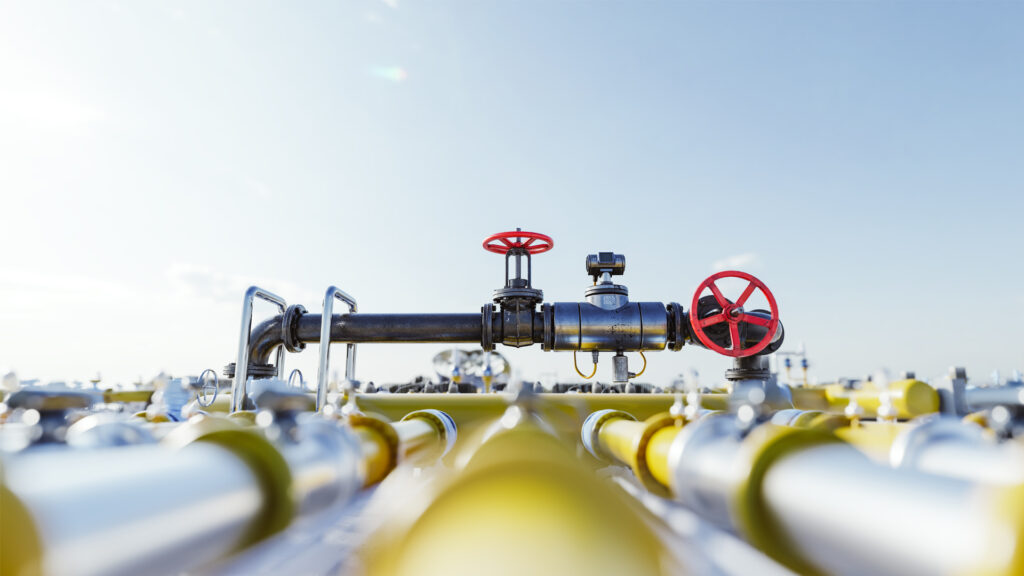By Dawn Shirreffs, Environmental Defense Fund
Florida has grown dangerously overreliant on a single energy source, natural gas.
In fact, natural gas makes up 75% of the energy we use to power our schools, homes, businesses and cars. With natural gas prices rising and unsteady, this overreliance has left Floridians experiencing the brunt of volatile energy markets. Diversifying our energy supply will help protect Florida’s residents and businesses from these unnecessary and unwanted costs, but it is a complicated process and to get there we need Florida’s lawmakers to chart a course.
Florida House Speaker Paul Renner and House Commerce Chair Bob Rommel are absolutely right to explore an energy agenda, and we appreciate the open door they have offered. While it is unlikely an economically sound and science-based plan can be created during the short 60-day legislative session, we are hopeful that when the dust settles on the 2024 legislative session, lawmakers will have, at a minimum, created a task force to evaluate emerging technologies, address growing demand and evaluate fuel, maintenance and operational costs over time. This will allow the state to take a giant step toward developing a long-term, viable plan for Florida’s energy security.

Along with my colleagues at the Environmental Defense Fund, we believe there are free-market opportunities that will help diversify and stabilize energy prices for our state’s growing population.
You cannot drive a car by looking through the rearview mirror. Instead of focusing on the technologies of yesterday, Florida’s leaders must chart a course with a clear vision of attainable energy objectives focused on the facts. In addition to the creation of a task force, we recommend the Legislature consider three core foundational pillars of energy diversification:
First, solar energy generation production. Solar is now 15% more cost effective than natural gas and carries no additional fuel costs. As the Sunshine State, it is imperative that we focus on harnessing this capacity to diversify from overreliance on fossil fuels.
Second, reducing waste through robust energy efficiency and grid reform. Research shows Floridians’ bills could be reduced up to 47% by installing ductless heat pumps and other energy-efficient components. We can leverage this opportunity to accommodate our growing demand while reducing the need to build more expensive and polluting fossil fuel power plants.
Third, allow Florida’s Office of Energy to advance residential energy-efficiency programs, rebates and contractor trainings. Funding and programs dedicated to energy efficiency are an important part of moving Florida toward positive outcomes. Eliminating waste reduces the state’s overall energy consumption, thereby reducing costs, which is a crucial aspect of addressing energy affordability for Floridians. These measures also help to address and mitigate costs in a state particularly vulnerable to summer heat and severe storms.

The state of Florida does not invest our police and teacher pensions in a single segment of the economy, especially not a volatile one. Similarly, we should diversify our energy investments to reduce risk. Our state has significant untapped potential for energy that is home grown, not imported through thousands of miles of pipelines from out of state.
Florida’s overreliance on a single energy source has costly consequences to families and businesses. Our team of scientists and economists stands ready to support efforts to create a task force, identify opportunities to diversify risk and stabilize energy prices for Florida’s growing population.
Now is the time to power Florida forward.
Dawn Shirreffs is the Florida director of the Environmental Defense Fund.
If you are interested in submitting an opinion piece to The Invading Sea, email Editor Nathan Crabbe at ncrabbe@fau.edu. Sign up for The Invading Sea newsletter by visiting here.




M. Shirreffs editorial was quite good and pointed out significant issues regarding FPL, the major power provider in Florida, and its energy generation strategy. However, she neglected to recognize several facts.
1. FPL is a public company, thus its first and MAIN responsibility is to its shareholders, not the State of Florida or its citizens.
2. FPL is one of the three legs that control Florida politics (Big Sugar and “big” Real Estate being the other two). One need only examine the recent, and largely downplayed, political corruption by its executive(s) regarding the fake candidacy debacle in the last election. The only difference between this and previous identical behavior, in my opinion, is that this time they were caught.
3. Florida, the “Sunshine State,” should have begun investing in solar energy programs 50 years ago. Instead, FPL used their political power to actively block most solar investment. Their current minor investments are geared to ROI for their stockholders. Their attitude toward their customers seems to be less than devoted regardless of the constant reminders of how low our energy rates are compared to states that face much more difficult production issues.
A perfect example of the attitude of FPL resides in their treatment of their executives and specifically former CEO, James Broadhead (1989-2001). Mr. Broadhead was working on a merger between FPL and Entergy.
From the Tampa Bay Times, February 9, 2001:
FPL Group’s failed merger with Entergy Corp. was a bust for the Florida utility’s shareholders, but FPL’s top executives exited the deal like lottery players who just hit the jackpot.
In an unusual move even in this day of multimillion-dollar executive salaries and bonuses, FPL chairman and chief executive James Broadhead and his seven top lieutenants will keep $60-million in merger-related bonuses paid to them in cash in December after shareholders approved the deal.
Broadhead’s take alone from the failed merger was $21.1-million…
https://www.tampabay.com/archive/2001/04/09/fpl-brass-keep-merger-bonuses/
FPL brass keep merger bonuses
FPL Group’s failed merger with Entergy Corp. was a bust for the Florida utility’s shareholders, but FPL’s top executives exited the deal like lottery players who just hit the jackpot.
http://www.tampabay.com
Evidently, failure was not only an option at FPL, but also the most profitable one for its executives.
While I support everything in M. Shirreffs’ editorial, as a 50+ year resident of our state, I submit that, in my opinion, it would be naive of her, and all other Florida citizens, to believe that anything other than political influence, illegal behavior, and shareholder return were important or relevant to FPL and its executives.
Having stated these items, I do agree that FPL has done superb work in starting to harden their systems and in their investments in the hurricane recovery process.
Regards,
Richard O
Hobe Sound, FL